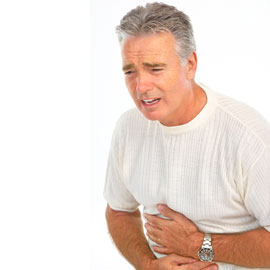
Could your waistline increase your risk of developing cancer? According to recent research, the answer may be yes. As the rate of esophageal cancer in the United States goes up, there are some who identify obesity as the culprit behind the heartburn and acid reflux, and now studies are indicating that being obese could increase your risk of esophageal cancer.
According to one study out of the Queensland Institute of Medical Research in Brisbane, Australia, those struggling with obesity are six times more likely to develop esophageal cancer as those who have a healthy weight level.
Adenocarcinoma is considered one of the most fatal forms of cancer, and it affects the esophagus. Unlike squamous cell carcinoma which is largely attributed to excessive alcohol consumption and tobacco use, adenocarcinoma develops from acid reflux disease—a condition that is growing in popularity as more struggle with their weight. The number of people diagnosed with adenocarcinoma has tripled over the past several decades, making up about 85 percent of current esophageal cancer diagnoses.
Studying the Obesity & Cancer Connection
Researchers at Lacks Cancer Center in Grand Rapids, Michigan drew a strong connection between the rise of obesity and increase in the rates of esophageal cancer, even going as far as to say that taking precautions against obesity could reduce your risk of developing adenocarcinoma.
Between 1975 and 1996 there was a substantial shift in the type of esophageal cancers diagnosed. Forty years ago three-out-of-four esophageal cancers were squamous cell carcinoma. Fifteen years ago adenocarcinoma, the more dangerous of the two, became the most prominent. The rate of people becoming diagnosed with adenocarcinoma is growing faster than that of any other form of cancer out there.
In a separate study, researchers at the Dana Farber Cancer Institute found that adenocarcinoma is specifically linked with heartburn and acid reflux, conditions that are common among those struggling with obesity. Chronic acid reflux can lead to severe esophageal damage, potentially exposing the esophagus to molecular mutations that can lead to cancer development.
Being obese or severely overweight increases your risk for gastroesophageal reflux disease or GERD, a condition marked by a damaged lower esophageal sphincter (LES) that ultimately permits digestive juices from the stomach to backwash into the esophagus, causing heartburn and acid reflux. Managing your weight can reduce your risk of developing GERD, which may further reduce your risk of developing esophageal cancer.